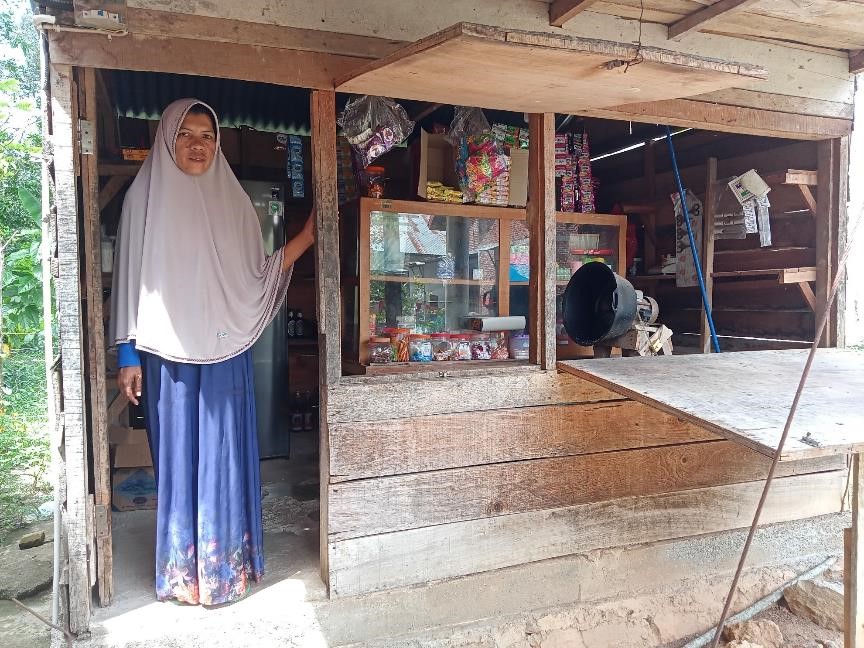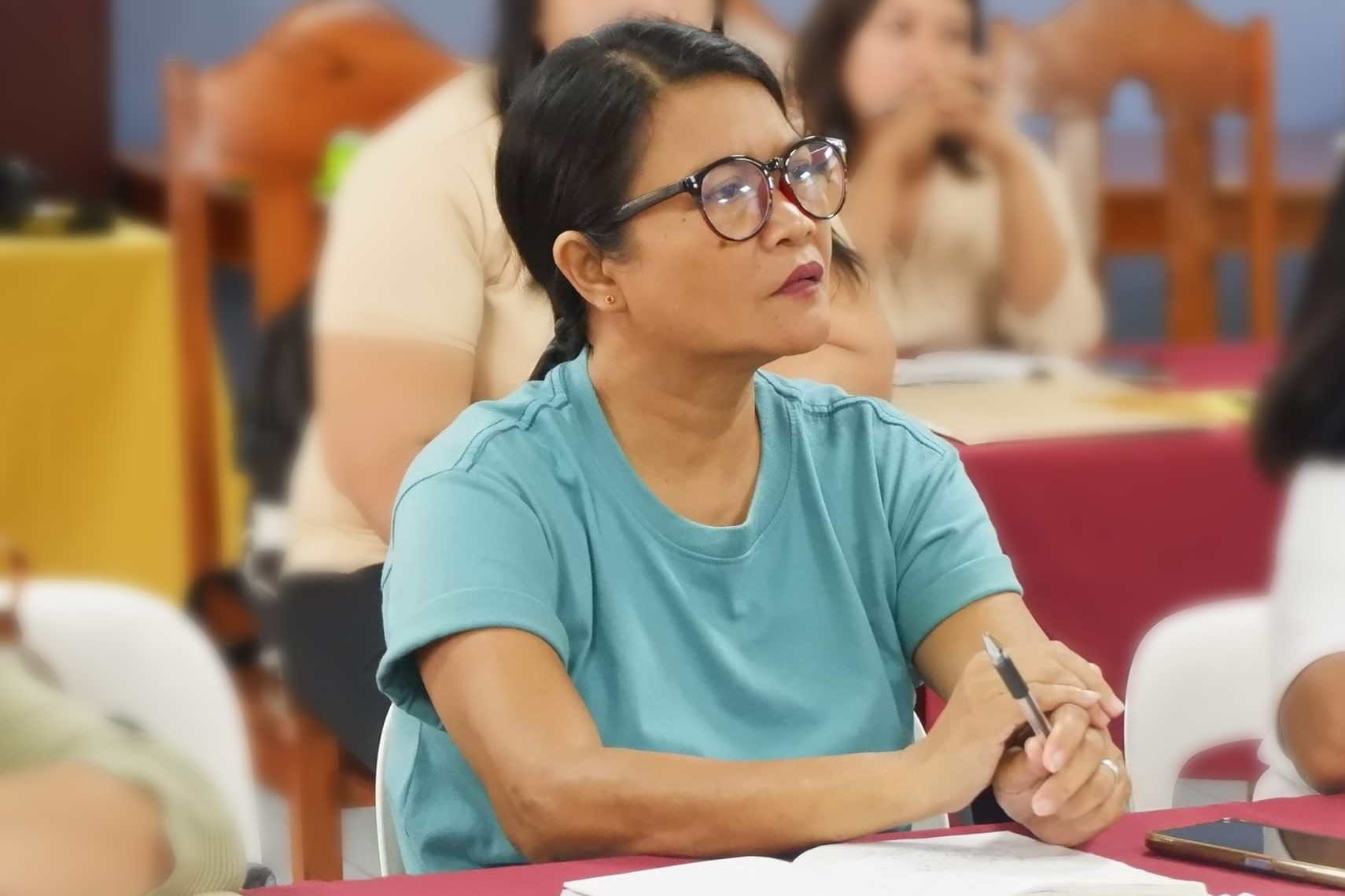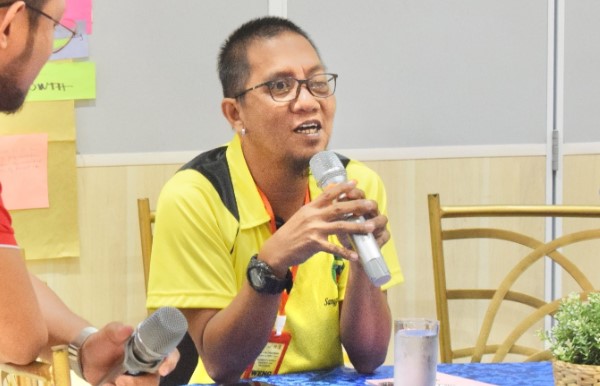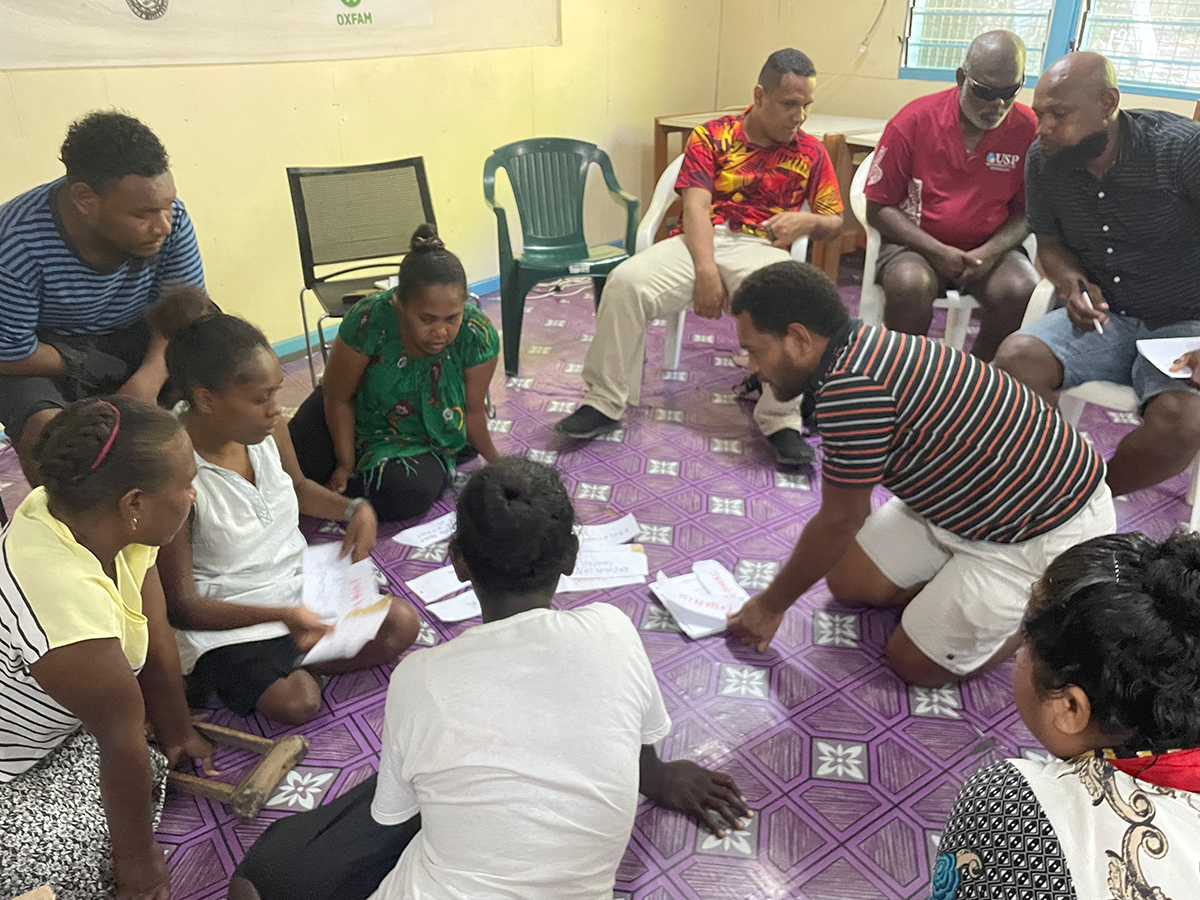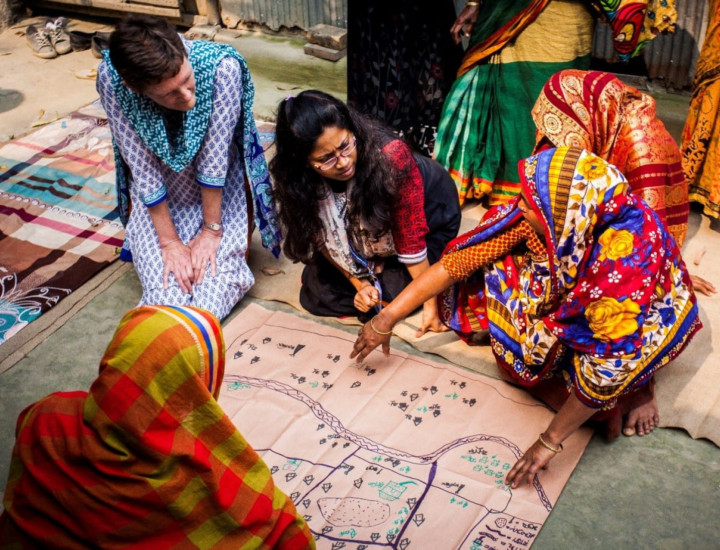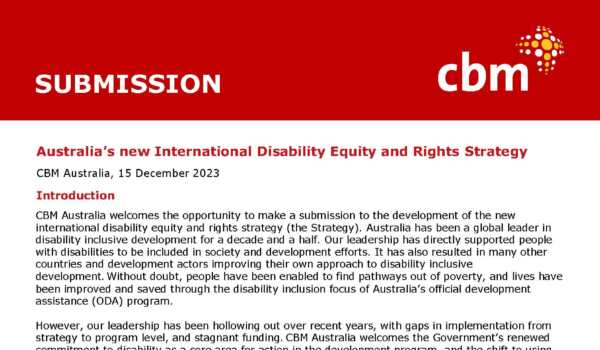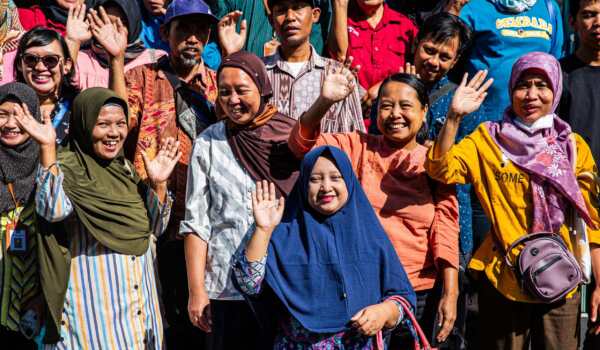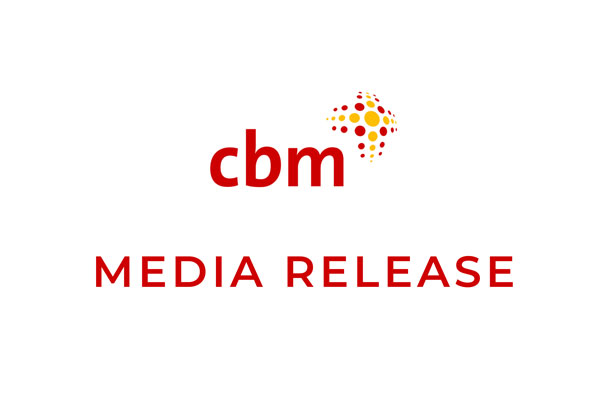Working with the Australian government to improve disability inclusion and equity
In working to transform the lives of people with disabilities living in the world’s poorest places, CBM Australia partners with the Australian Government, mainly through the Department of Foreign Affairs and Trade (DFAT), which is responsible for managing Australia’s international aid program. We have built strong connections with DFAT through our three vehicles of change: advisory, advocacy, and programs.
In 2023, for instance, we supported DFAT to drive progress towards disability equity and inclusion by providing technical support through our Inclusion Advisory Group (IAG) to address disability issues across the whole aid program. Our advocacy work in 2023 focused on ensuring that DFAT’s new International Disability Equity and Rights strategy is ambitious and developed based on consultation with Organisations of People with Disabilities (OPDs). During the 2022-23 financial year, the Disability Inclusive and Resilient Communities Program under CBM Australia’s ANCP supported program directly reached more than 470,000 people in nine countries: Bangladesh, Cameroon, Ethiopia, Fiji, Indonesia, Kenya, Nepal, Nigeria and the Philippines. The participants benefitted from one or more of three pathways contributing to key outcomes of improved lives and reduced poverty.
Building on our three vehicles of change, we partner with DFAT in a variety of ways to bring about wide ranging and impactful change for people with disabilities.
Program delivery
The most significant vehicle for CBM to deliver programs with support from the Australian government is via the Australian NGO Cooperation program (ANCP). ANCP is a unique Australian development program that creates partnerships between the Australian Government and highly effective Australian Non-Government Organisations (NGOs) to support the most disadvantaged in communities around the world. CBM has been an accredited ANCP partner for more than 15 years.
Through ANCP funding, CBM works to address barriers to inclusion through the Disability Inclusive and Resilient Communities Program implemented across Bangladesh, Indonesia, Kenya, Nepal, Nigeria and Philippines. The Program seeks to improve quality of life for people with disabilities, their families and communities by building inclusive resilient communities that respect the rights of marginalised groups, particularly people with disabilities. Highlighted below are some examples of the impact that we have achieved through our ANCP funding from the Australian Government.
Technical advisory
CBM’s Inclusion Advisory Group (IAG) has been DFAT’s disability inclusion technical partner for over a decade. DFAT has taken a leading role on disability-inclusive development since being among the first bilateral donors to create a disability inclusion strategy for the aid program.
Since 2011, we have worked with DFAT in a series of technical partnerships to support the implementation of the Australian Government’s commitments to strengthening disability inclusion within the aid program. Through our technical advisory support, CBM provides DFAT with access to a global and localised network of advisors and researchers, to create global and systemic policy change, as well as impact on the ground in the lives of individuals, their families and communities.
Advocacy
CBM Australia’s advocacy team works across the organisation, with our partners and others in the development and humanitarian sector to identify and amplify opportunities to improve policies and approaches so that people with disabilities are included in the aid program, and are able to participate in society on an equal basis with others.
We produce evidence-based analysis, policy positions and recommendations, arising from the experience of CBM’s OPD partners, and with people with disabilities more broadly. Working with disability rights advocates and as part of networks and coalitions, we engage with DFAT and agencies delivering Australia’s aid program to drive best practice.
CBM Australia is accredited by the Australian Department of Foreign Affairs and Trade (DFAT), which is responsible for managing Australia’s aid program. To maintain accreditation, CBM Australia’s systems, policies and processes are rigorously reviewed, every five years and mid-term, by the Australian government. The most recent review was undertaken during the second half of 2021, and full reaccreditation was awarded in early 2022. CBM Australia receives and gratefully acknowledges support through the Australian NGO Cooperation Program (ANCP).

